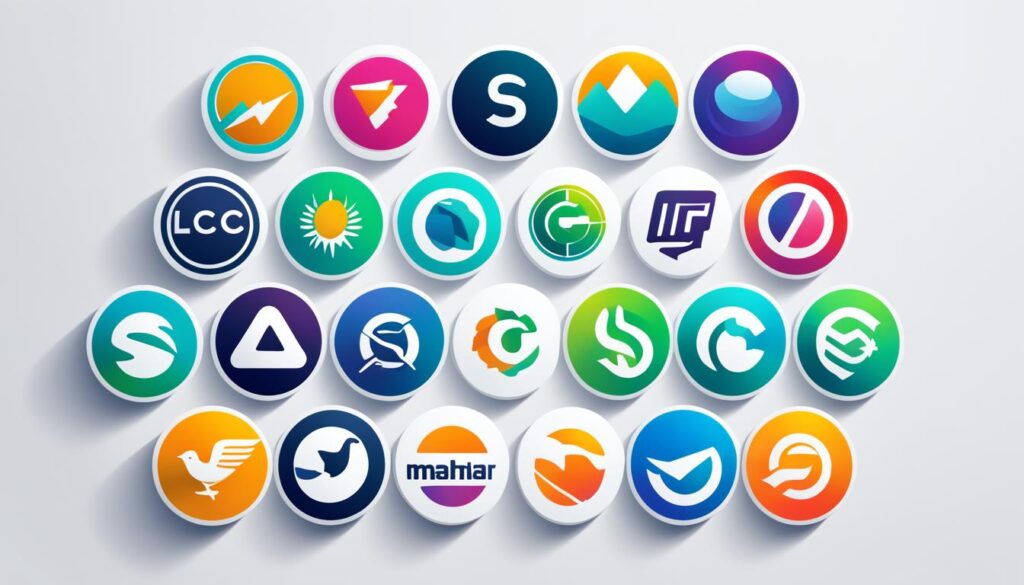Best Crowdfunding Platforms to Launch Your Project

Finding the money you need to start a business can be challenging. Traditional methods like bank loans or pitching to investors are great options, but may not be accessible to everybody. Even if you’ve secured a small business loan, you may need more funds to cover your startup costs. But what if there was a way to tap into the power of the crowd and raise the capital you need? Enter crowdfunding.
Have you ever wondered how some of the most innovative projects and startups managed to get off the ground? The answer might lie in the strategic use of crowdfunding platforms. But which one should you choose for your next big idea? Keep reading to discover the best crowdfunding platforms that can help you turn your entrepreneurial dreams into reality.
Key Takeaways
- Crowdfunding provides an alternative to traditional funding methods, allowing entrepreneurs to tap into the power of the crowd.
- Popular crowdfunding platforms like Kickstarter, Indiegogo, GoFundMe, and Patreon offer unique features and benefits for different types of projects.
- Choosing the right crowdfunding platform requires considering factors such as your target audience, funding goals, and platform fees.
- Crowdfunding not only helps you raise funds, but also allows you to build a loyal community of supporters and advocates.
- Equity crowdfunding platforms like StartEngine, Fundable, and Wefunder cater to high-growth startups and tech companies.
But before you dive into the world of crowdfunding platforms, ask yourself: Are you truly prepared to launch a successful crowdfunding campaign? The key to crowdfunding success lies in understanding the nuances of each platform and aligning your project with the right audience. Let’s explore the top crowdfunding platforms and uncover the secrets to launching your project with a bang.
What is Crowdfunding?
Crowdfunding is a revolutionary method of raising capital where numerous individuals contribute smaller amounts of their personal money to support a business. This approach contrasts sharply with traditional fundraising, which typically involves securing large investments from a limited number of sources, such as accredited investors or venture capital firms.
Definition of Crowdfunding
Crowdfunding is the practice of funding a project or venture by raising monetary contributions from a large number of people, typically via the internet. This innovative approach empowers entrepreneurs, creators, and startups to tap into the collective power of their audience and community to bring their ideas to life.
How Crowdfunding Works
In a crowdfunding campaign, “backers” are offered incentives in exchange for their donations and support. These incentives can range from early access to purchase a product, possibly at a discounted price, to the option to preorder a product and have a say in its development. Backers may also receive exclusive rewards like an ongoing discount, enhanced customer loyalty status, free merchandise, access to the founding team or other crowdfunders, equity, and exclusive content.
Benefits of Crowdfunding
The benefits of crowdfunding extend far beyond just securing the necessary capital. This transformative approach allows businesses to test new products, gauge demand for their latest ideas, and build a loyal community of supporters and advocates. By trading preorder rights, gifts, exclusive access, or equity for the support of their audience, entrepreneurs can unlock a wealth of valuable insights and insights that can propel their ventures to new heights.
Top Crowdfunding Platforms
As one of the most well-known online fundraising platforms, Kickstarter is almost synonymous with crowdfunding. Since its launch in 2009, the Kickstarter community has helped more than 250,000 projects raise funds—including physical and digital products. Kickstarter is a reward-based fundraiser platform. Backers are offered incentives to support a project, such as exclusive preorder discounts, gifts, or shoutouts. Kickstarter campaigns are an all-or-nothing affair, which means you only get access to your funds (and pay Kickstarter’s platform fee) if you meet your initial fundraising goal. If you fall short, then all the money stays with your funders.
Indiegogo is a crowdfunding platform that supports businesses, artists, and nonprofits. While similar to Kickstarter, it comes with its own set of easy-to-use tools and campaign options. The biggest difference between the two platforms is the option to choose a flexible funding goal for your campaign alongside a fixed all-or-nothing goal (like Kickstarter). With flexible funding goals, you receive your funds regardless of whether you’ve met your ultimate goal by its deadline. Indiegogo’s InDemand feature lets you keep the momentum going and continue raising money without a timeline, even after your fundraising campaign ends.
GoFundMe advertises itself as “Your Home for Help.” The platform focuses on medical needs, emergencies, non-profit causes like education and crisis relief, and memorials. GoFundMe is a donation-based crowdfunding platform, meaning there are no rewards offered to backers – GoFundMe explicitly prohibits organizers from offering any type of good or service to donors.
Patreon is a widely-used crowdfunding platform in communities specifically to fund creative projects and support new startups. Since its inception, the platform has facilitated over $2 billion in crowdfunding to creators from fans, family, and friends. Patreon is a reward-based platform that allows creators to set up monthly subscription-based funding, offering their patrons exclusive perks like access to gated content, branded merch, sneak peeks, and more.

Crowdfunding Platforms for Startups
The world of crowdfunding offers a diverse range of platforms catering specifically to the needs of startups. Three prominent options that have gained significant traction are StartEngine, Fundable, and Wefunder.
StartEngine
StartEngine Crowdfunding, Inc. has become a leader in the US equity crowdfunding space. According to its website, the platform has raised over $650 million through a combination of Regulation and Regulation A+ crowdfunding by using its subsidiaries, StartEngine Primary and StartEngine Capital. This funding has been split between over 500 startup offerings available on their platform to date. StartEngine is best suited for startups with a long-term vision and growth-focused startups, as it specializes in equity crowdfunding.
Fundable
Fundable is part of the Startups.co platform and is among the top crowdfunding sites that allow US startups to offer rewards—including equity—in exchange for funding. The platform offers self-managed fundraising as well as campaign support, where Fundable will help you create a pitch deck and identify prospective investors. Startups that use Fundable to offer rewards typically raise fewer funds but get more backers, while startups that use equity crowdfunding usually raise more capital from fewer investors.
Wefunder
Wefunder is an equity crowdfunding platform, which means that investors are rewarded with equity in the company in exchange for their funding. Alternatively, startups are also able to engage in debt crowdfunding on the site as well which means they will be responsible for paying the amount back they receive in funding. Wefunder is best suited for high-growth startups, tech startups, and equity-based startups, as it has a high success rate of roughly 75% and provides access to additional resources for legal help, crowdfunding support, and more.
Crowdfunding Platforms for Specific Niches
While the mainstream crowdfunding platforms like Kickstarter and Indiegogo cater to a wide range of projects, there are specialized platforms that target specific industries or demographics. These niche-focused platforms can be particularly beneficial for entrepreneurs and organizations seeking to connect with a more targeted audience and access tailored resources and support.
CrowdStreet (Real Estate)
CrowdStreet is a fundraising site dedicated to the real estate investment market. Since its founding, the CrowdStreet team has listed over 177 deals from 343 different sponsors, raising over $4.3 billion in investment capital. CrowdStreet focuses on accredited investors looking to build a portfolio in private real estate, potentially offering a less risky investment option than the stock market.
Mightycause (Nonprofits)
Mightycause gets its name from its goal: to promote social causes. Mainly targeted at nonprofits, Mightycause also serves teams and individuals looking to make a meaningful difference. Mightycause offers donor management tools and real-time donation reports, and partners with organizations to run community-led “Giving Days”. While a smaller company, Mightycause can be a great fit for nonprofits and social entrepreneurs looking to raise funds for their causes.
IFundWomen (Women Entrepreneurs)
IFundWomen is a crowdfunding platform built specifically for women entrepreneurs. The platform provides extensive support for women entrepreneurs including private coaching, networking opportunities, and even vetted freelancers. IFundWomen allows founders to easily apply for grants if they become a member, and follows a keep-what-you-raise model, making it a great fit for women-led and purpose-driven startups, especially in the food and beverage industry.

Choosing the Right Crowdfunding Platform
When selecting the ideal crowdfunding platform for your project, it’s crucial to consider several key factors. These include your target audience, the type of funding you’re seeking (rewards, equity, or donation-based), the platform’s fee structure, and the specific campaign requirements.
Factors to Consider
Different crowdfunding platforms cater to diverse types of projects and industries. It’s essential to evaluate which platform best aligns with your business needs and fundraising goals. Factors such as your target audience, the nature of your project, and the desired funding model should all inform your platform choice.
Fees and Payment Processing
Crowdfunding platforms typically charge a percentage-based platform fee, as well as payment processing fees that can range from 3-5%. Carefully reviewing the fee structures of each platform is crucial to understanding the total cost of running your campaign. Some platforms may offer more flexible or lower fee options, depending on the type of funding you’re seeking.
Campaign Requirements
Each crowdfunding platform has its own set of campaign requirements, such as minimum funding goals, application processes, and eligibility criteria. Some platforms may only accept certain types of projects or startups, while others may have more lenient requirements. Understanding the specific guidelines of each platform is essential to ensure your campaign meets the necessary criteria for success.
Conclusion
Crowdfunding has become an increasingly popular and powerful way for entrepreneurs, creators, and startups to raise the funds they need to bring their projects to life. By leveraging the power of the crowd, businesses can not only secure the necessary capital, but also build a loyal community of supporters and advocates.
The various crowdfunding platforms offer a diverse range of options, catering to different funding needs, industries, and target audiences. From reward-based platforms like Kickstarter and Indiegogo to equity-based platforms like StartEngine and Wefunder, entrepreneurs can choose the model that best aligns with their business goals and target market.
Ultimately, crowdfunding has revolutionized the way businesses and individuals can access funding and resources. By tapping into the collective power of the crowd, entrepreneurs can bring their ideas to life, foster deeper connections with their supporters, and pave the way for long-term success.
FAQ
What is crowdfunding?
Crowdfunding is a method of raising capital where numerous individuals contribute smaller amounts of their personal money to support a business. This contrasts with traditional fundraising, which typically involves securing large investments from a limited number of sources, such as accredited investors or venture capital firms.
How does crowdfunding work?
Crowdfunding “backers” are offered incentives in exchange for their donations and support. Incentives can include early access to purchase a product, possibly at a discounted price, the option to preorder a product and have a say in its development, exclusive rewards like an ongoing discount, enhanced customer loyalty status, or free merch, access to the founding team or other crowdfunders, equity, and exclusive content.
What are the benefits of crowdfunding?
The benefits of crowdfunding don’t stop at fundraising. Crowdfunding lets you test new products and gauge demand for your latest content idea. You can trade preorder rights, gifts, exclusive access, or equity for the support of your audience.
What is Kickstarter?
Kickstarter is a reward-based fundraiser platform. Backers are offered incentives to support a project, such as exclusive preorder discounts, gifts, or shoutouts. Kickstarter campaigns are an all-or-nothing affair, which means you only get access to your funds (and pay Kickstarter’s platform fee) if you meet your initial fundraising goal. If you fall short, then all the money stays with your funders.
How is Indiegogo different from Kickstarter?
The biggest difference between the two platforms is the option to choose a flexible funding goal for your campaign alongside a fixed all-or-nothing goal (like Kickstarter). With flexible funding goals, you receive your funds regardless of whether you’ve met your ultimate goal by its deadline. Indiegogo’s InDemand feature lets you keep the momentum going and continue raising money without a timeline, even after your fundraising campaign ends.
What is GoFundMe?
GoFundMe advertises itself as “Your Home for Help.” The platform focuses on medical needs, emergencies, non-profit causes like education and crisis relief, and memorials. GoFundMe is a donation-based crowdfunding platform, meaning there are no rewards offered to backers – GoFundMe explicitly prohibits organizers from offering any type of good or service to donors.
What is Patreon?
Patreon is a reward-based platform that allows creators to set up monthly subscription-based funding, offering their patrons exclusive perks like access to gated content, branded merch, sneak peeks, and more.
What is StartEngine?
StartEngine Crowdfunding, Inc. has become a leader in the US equity crowdfunding space. StartEngine is best suited for startups with a long-term vision and growth-focused startups, as it specializes in equity crowdfunding.
What is Fundable?
Fundable is part of the Startups.co platform and is among the top crowdfunding sites that allow US startups to offer rewards—including equity—in exchange for funding. Startups that use Fundable to offer rewards typically raise fewer funds but get more backers, while startups that use equity crowdfunding usually raise more capital from fewer investors.
What is Wefunder?
Wefunder is an equity crowdfunding platform, which means that investors are rewarded with equity in the company in exchange for their funding. Wefunder is best suited for high-growth startups, tech startups, and equity-based startups, as it has a high success rate of roughly 75% and provides access to additional resources for legal help, crowdfunding support, and more.
What is CrowdStreet?
CrowdStreet is a fundraising site for real estate investors. CrowdStreet focuses on accredited investors looking to build a portfolio in private real estate, potentially offering a less risky investment option than the stock market.
What is Mightycause?
Mightycause gets its name from its goal: to promote social causes. Mainly targeted at nonprofits, Mightycause also serves teams and individuals looking to make a meaningful difference. Mightycause offers donor management tools and real-time donation reports, and partners with organizations to run community-led “Giving Days”.
What is IFundWomen?
IFundWomen is a crowdfunding platform built specifically for women entrepreneurs. The platform provides extensive support for women entrepreneurs including private coaching, networking opportunities, and even vetted freelancers. IFundWomen allows founders to easily apply for grants if they become a member, and follows a keep-what-you-raise model.
How do I choose the right crowdfunding platform?
When choosing the right crowdfunding platform for your project, it’s important to consider factors such as your target audience, the type of funding you’re seeking (rewards, equity, or donation-based), the platform’s fee structure, and the specific campaign requirements. Different platforms cater to different types of projects and industries, so it’s crucial to evaluate which platform best aligns with your business needs and fundraising goals.
What are the typical fees for crowdfunding platforms?
Crowdfunding platforms typically charge a percentage-based platform fee, as well as payment processing fees that can range from 3-5%. It’s important to carefully review the fee structures of each platform to understand the total cost of running your campaign. Some platforms may offer more flexible or lower fee options, depending on the type of funding you’re seeking.
What are the campaign requirements for crowdfunding platforms?
Each crowdfunding platform has its own set of campaign requirements, such as minimum funding goals, application processes, and eligibility criteria. Some platforms may only accept certain types of projects or startups, while others may have more lenient requirements. Understanding the specific guidelines of each platform is essential to ensure your campaign meets the necessary criteria for success.




